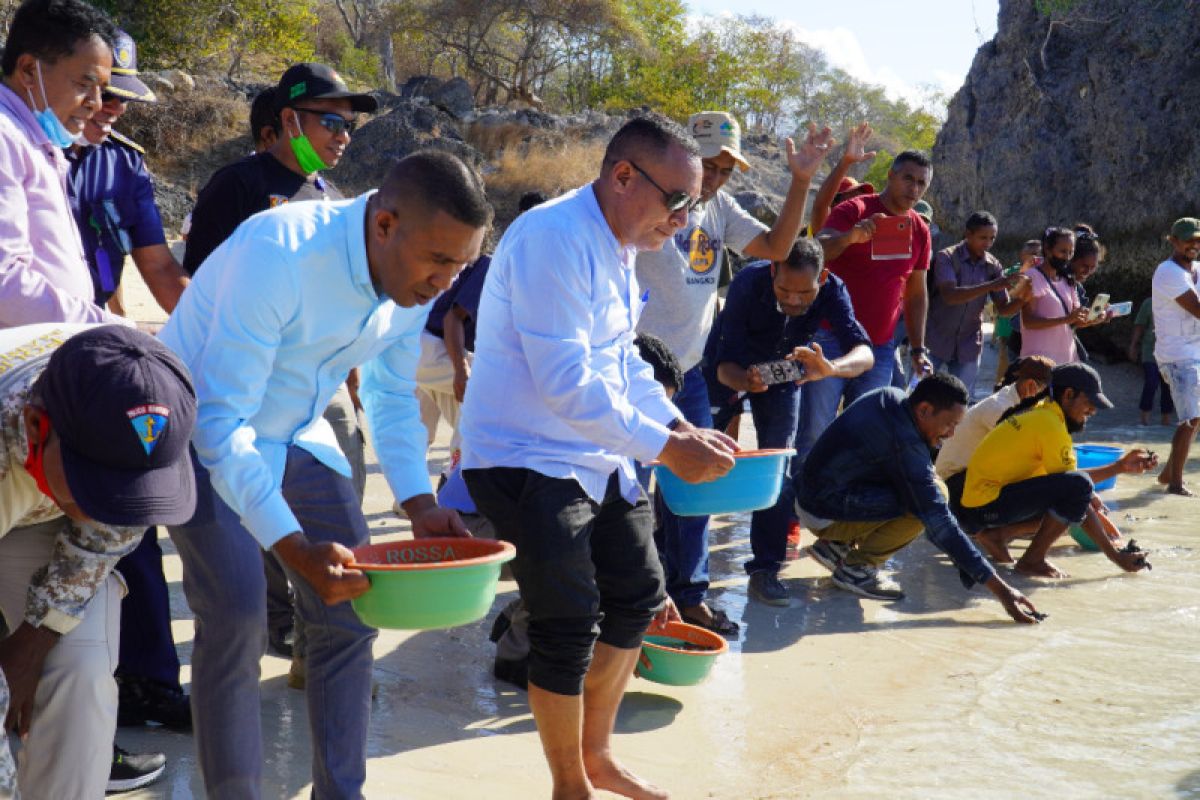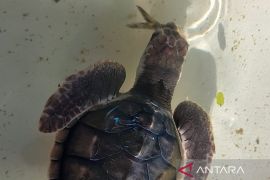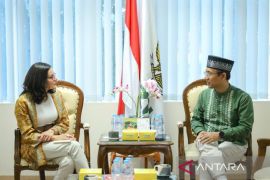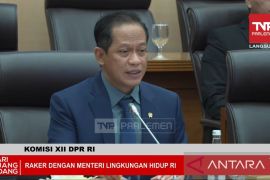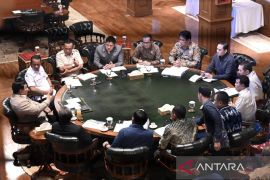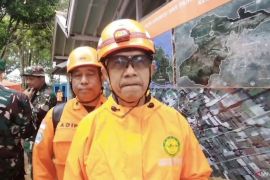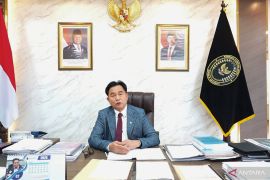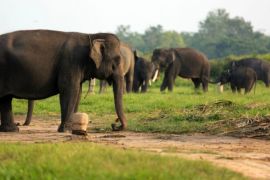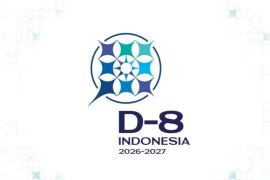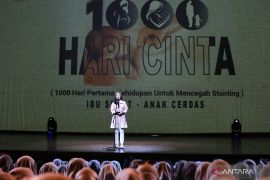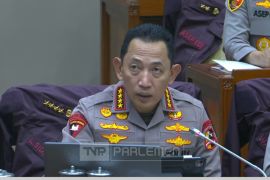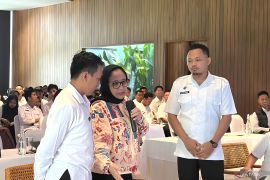In conjunction with World Sea Turtle Day, the GEF (Global Environment Facility)/UNDP (United Nations Development Programme)/PEMSEA ATSEA-2 (Partnerships in Environmental Management for the Seas of East Asia - Arafura & Timor Seas Ecosystem Action 2) brought together key opinion leaders, experts, professionals, and community leaders to commemorate the endangered species of sea turtles in the Arafura and Timor Seas (ATS) region on June 21, 2022, through a virtual webinar.
Organized in partnership with ArgoAsia, World Sea Turtle Day by ATSEA-2 aims to highlight the importance of sea turtles and encourages communities to take stock of the threats that sea turtles face.
Main speakers at the webinar included ATSEA-2 Project Sea Turtle Expert Consultant, Dr. Kiki Dethmers; Project Manager, Sea Environmental Management Torres Strait Regional Authority, Moni Carlisle; Actress and Sea Turtle Campaigner, Asmara Abigail; and Turtle Conservation and Education Center (TCEC) Marketing Officer, I Wayan Dedi.
Casandra Tania, Regional Biodiversity Specialist for the ATSEA-2 Project, stated that as global citizens and inhabitants of planet earth, it is incumbent on all of us to treasure and protect all living creatures.
“Let this day be the starting point of our contributions toward the betterment of sea turtles. Sea turtles deserve our attention,” Tania stated.
Related news: Five giant leatherbacks lay eggs on Raja Ampat's Warebar Beach
Raising awareness of the vulnerability of sea turtles
The ATS region, spanning Australia, Indonesia, Papua New Guinea (PNG), and Timor-Leste, encompasses more than five thousand kilometers (km) of coastline; impacting the lives of more than one million inhabitants and with an economic value of US$7.3 billion per year.
It is home to six species of sea turtles comprising the green turtle (Chelonia mydas); hawksbill (Eretmochelys imbricata); loggerhead (Caretta caretta); leatherback (Dermochelys coriacea); olive ridley (Lepidochelys olivacea); and flatback turtle (Natator depressus), and they are either listed as Vulnerable, Endangered, or Critically Endangered, and are the subject of protection via several national legislation instruments and international conventions, according to the report of the project.
The status of sea turtles as a subject of protection is not without reasons on account of bycatch, illegal trade and direct consumption, habitat loss, and climate change, due to which they suffer mortality.
According to World Wildlife Fund (WWF), 250 thousand turtles died annually of bycatch, and tens of thousands of sea turtles are lost each year to overharvesting and illegal trade worldwide.
In addition, sea turtles have been utilized for food and trade and have been part of ceremonial practices for thousands of years.
However, sea turtles should continue to be protected from dying, as they play important ecological roles, cropping seagrasses, foraging on sponges on coral reefs, and acting as top and middle predators in marine ecosystems.
Related news: West Papua police arrest resident with two protected hawksbill turtles
Sea turtles’ conservation
In raising awareness of sea turtles’ imminent role in keeping the coastal ecosystem healthy, Sea Turtle Expert Consultant of the ATSEA-2 Project, Dr. Kiki Dethmers, urged communities to start actions regionally, as she explained, “Everything starts with awareness—about sea turtles and how they affect the oceans and coastal communities. Then, try to get involved in or even start campaigns in your region.”
In affirming its action in protecting sea turtles, on April 20, 2022, ATSEA-2 held a sea turtle expert workshop to update the sea turtle status in the region and finalize the regional action plan. The workshop was attended by 27 experts from Australia, Indonesia, Papua New Guinea, and Timor-Leste. ATSEA-2 also supports the ongoing conservation initiatives taken by coastal communities, such as in Com Village, Lautem, Timor-Leste.
Moni Carlisle, Project Manager at the Sea Environmental Management Torres Strait Regional Authority, stated that conservation in the 21st century is no longer the responsibility of the few who select it as a career or whose values lead them to “preserve” species for future generations.
“Conservation is about communities and the sea turtle conservation in Torres Strait emphasizing the involvement of Torres Islanders' efforts,” Carlisle remarked.
Carlisle emphasized that community-led projects for the sake of sustainability of many endangered species and their ongoing management is critical.
“Especially, ones that are driven by the collaborative effort of grassroot communities, non-profits, and governments through sustainable partnerships,” she elaborated.
Related news: Preservation efforts intensified for Enggano Island's green turtles
Meanwhile, according to a survey conducted by the Indonesian Turtle Foundation, between 2019 and 2020, the illegal trade value of the hawksbill turtle could reach around Rp5 billion, or around US$338 thousand (converted as of June 29, 2022). Hence, as a joint initiative by the government and WWF-Indonesia to save Balinese turtles by eradicating turtle trading, the Turtle Conservation and Education Center (TCEC) was built in 2006 as one of the largest conservation efforts for turtles in Bali.
“In TCEC, we tried to encourage the public to not consume turtle meat and products by providing the local community with various training programs and education, improving the tourism potential and other activities, as well providing job opportunities to the locals of Serangan,” Turtle Conservation and Education Center (TCEC) Marketing Officer I Wayan Dedi revealed.
Asmara Abigail, Actress and Sea Turtles Campaigner, said she became more empathic towards sea turtles during the filming of a movie, and she thereafter decided to fundraise for TCEC in Serangan Island, as her form of support for the sustainability of sea turtles.
“I learned about the plight of sea turtles while shooting a movie, and I realize how endangered they were. Therefore, I used my platform to raise awareness and fundraise for the Turtle Conservation and Education Center (TCEC) in Serangan Island, Denpasar, Bali, for supporting sea turtles’ conservation,” Abigail said.
To have more insight about ATSEA-2 and the sea turtles, the recorded version of the event is available at https://www.youtube.com/watch?v=9AkUZJsEWls
About ATSEA-2
ATSEA-2 Project is the 2nd phase of the GEF-financed, UNDP-supported ATSEA Programme. The project will run for five years (2019-2024) and is supported by a GEF grant amounting to US$9.7 million, with counterpart co-financing commitments from the country and various other partners amounting to US$60.2 million. The regional project involves the Governments of Indonesia, Timor-Leste, and Papua New Guinea, with support from the Australian Government.
The ATSEA Programme is designed to enhance collaboration and coordination in the Arafura and Timor Seas (ATS) region, with a mandate to support the implementation of the endorsed ATS regional Strategic Action Programme (SAP) 2014-2024 and pursue its long-term objective and vision: “to promote sustainable development of the Arafura-Timor Seas region to improve the quality of life of its inhabitants through restoration, conservation and sustainable management of marine- coastal ecosystems."
For further information, please contact:
Haryo Kresno, Public Relations Specialist, Argo Asia
Phone: +62 856 9388 7726
E-mail: haryo@argoasia.co.id
Dwi Aryo Tjiptohandono, Communications and Knowledge Management Specialist, ATSEA-2 Project
Phone: +62 817 700 626
E-mail: dtjiptohandono@pemsea.org
Close
EDITED BY INE
Editor: Suharto
Copyright © ANTARA 2022
